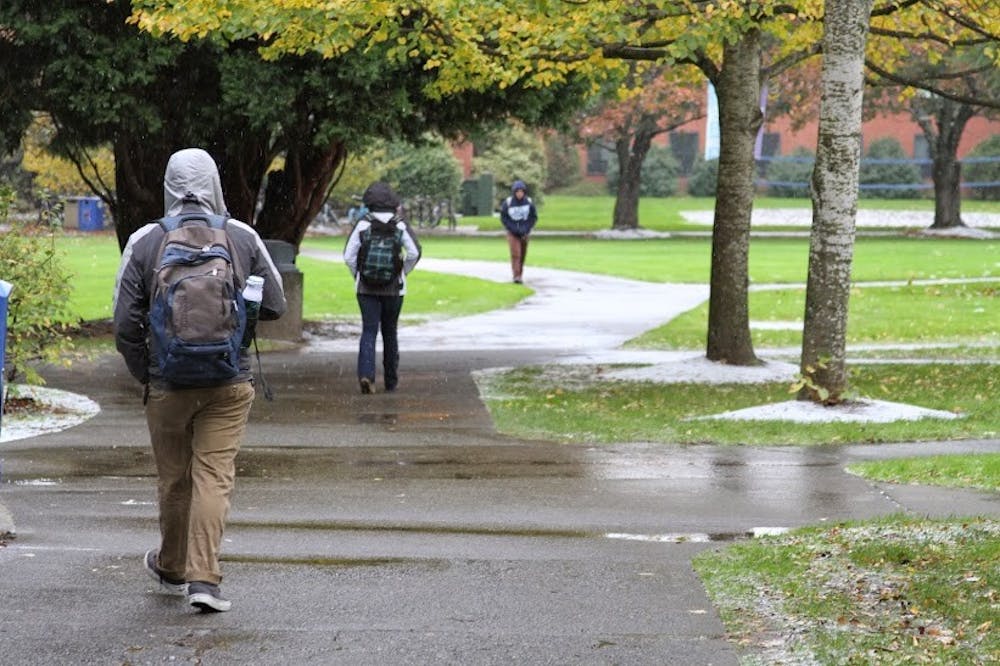As climate and sustainability have emerged in the general campus consciousness, water waste has been a consistent grievance among students. Complaints of sprinklers spraying sidewalks and passersby were aired frequently at the start of the semester.
But according to senior ground manager Nathan Hale, these complaints may be resolved in the near future.
Hale said the university’s sprinkler system, which was designed 60 years ago, is due for an update. Installation of a new, more environmentally friendly system will begin this winter, and is expected to be completed by Spring 2019.

Senior Mara Midiere said the inefficient sprinklers have been a problem since her freshman year.
“I see [people getting sprayed with water] all the time because the sprinklers will go over the main walkways,” said Midiere, who is majoring in environmental ethics and policy and organizational communication.
For a university "committed to living and acting sustainability," Midiere said she feels UP needs to fix its wasteful water use.
“I think [fixing the sprinklers] is one of the significant, and also easier, ways they can close that gap between what they want to do and what they’re actually doing on campus.” Midiere said.
But overwatered plants, wet sidewalks and watering in the rain will soon be problems of the past, Hale explained.
Besides athletic fields, the university doesn’t water during the fall and winter months from mid to late September until May, Hale said.
“When we go into this spring and we turn water back on, the quad will be all automated on the new system,” Hale said.
He explained that by the time the new Dundon-Berchtold Hall is finished in spring of 2019, most of campus will be on a new automated system, including new, more durable sprinkler heads.

The new system, which will be controlled by a database clock, will be able to adjust for weather conditions, water during less busy hours, adjust water output, and to be shut off electronically. But until that is installed, Hale said, there are currently over 20 watering clocks across campus that must be operated manually, and have to water in one area after another in a 14-hour cycle.
According to Ted Eckmann, assistant professor of environmental studies, this will be a welcome change. He said that the environmental impacts of this excess water usage range from runoff into the Willamette River to serious energy concerns.
“The main environmental impact would be the energy used to get that water to campus. A lot of that is delivered in a climate unfriendly way.” Eckmann said.
Though UP’s water comes from a private well, Hale said, Eckmann still expressed concern over the energy wasted transporting the wasted water from the well. Hale estimates the new system will reduce water usage by roughly 40 percent by spring 2019, which will hopefully abate some of these energy waste problems.
The current sprinkler system, which has been in place for 60 years, has been modified on a tight budget as campus expanded, according to Hale.
Back then, there were fewer sidewalks running across the quad.
When the new sidewalks were installed, they had to work around the existing sprinklers, Hale said. And though the sprinkler heads were set up to stop at the sidewalks, old age and people running into them caused them to twist toward the sidewalks.

Original sidewalk plans in blueprints from March 1954.
Hale hopes the new smart system will significantly reduce water waste by automatically adjusting to atmospheric conditions.
“Once that’s up and running, then we can allow it to make its own adjustments,” Hale said. “It’s gonna have weather forecasts, anticipate humidity, anticipate temperature, and it’s gonna be making those adjustments all on its own.”








